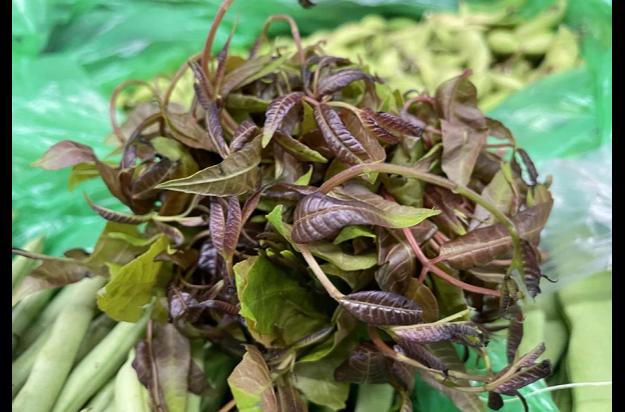Central Broadcasting Network Nanjing April 20 news (reporter Zheng Chuyu) Gu Yu, the last solar term of spring. In the folk, the valley rainy season often has the custom of "eating spring". The so-called "eating spring" is also known as "eating tsubaki", and the ordinary people's understanding of the season is often expressed on the table. People are accustomed to eating toon, a seasonal wild vegetable, on the day of Gu Yu, and taste the strong spring mood.
The joy of spring is also in the bowl in the eyes.
Toon, known as "vegetables on the tree", is also known as the "king of spring vegetables". "Before the rain, the buds are tender, and after the rain, the spring buds are full of wood." Before and after the valley rain is a good time to eat toon. "Everywhere you go, especially the hobbyists." Yuan Ming, the "foodie" of the Qing Dynasty, described the Nanjing people's love for toon at that time.

Toon is just in time (Photo by Zheng Chuyu, a reporter of the Central Broadcasting Network)
When it comes to eating spring vegetables, every Jiangsu person can chat a few words. Nanjing wild vegetables have the saying of "seven heads and one brain", including cabbage head, maran head, alfalfa head, pea head, toon head, goji berry head, small garlic head and chrysanthemum brain.
Nanjing people's "nostalgia" chrysanthemum brain (Photo by Zheng Chuyu, reporter of the Central Broadcasting Network)
"The peach and plum in the city are sad and rainy, and the cauliflower flowers are in the creek in the spring." It is almost the first of the wild vegetables to emerge, and with a spring breeze and a spring rain, the cabbage will arrive as promised. Cabbage dumplings, cabbage dumplings, cold mixed cabbage, cabbage dumplings... Tender cabbage can be transformed into a variety of delicious foods.
Wontons with cabbage (Image source: Visual China)
Lu You once had a poem "Spring comes to the beauty of the water chestnut and forgets to return" to praise the deliciousness of the cabbage.
Malan's head, just from the name can appreciate its vigorous vitality. If it is not plucked in the spring, the naturally growing maran head can grow to seventy or eighty centimeters tall, so it is said to be "stopping horses". The folk song sings: "The horse stops the head, the road is blocked, and I am the one who pulls the horse." ”
Ma Lantou (Photo by Zheng Chuyu, a reporter of the Central Broadcasting Network)
Ma Lantou mixed with dried incense (Image source: Visual China)
Malantou is detoxifying and detoxifying, and is a good product among wild vegetables. In Jiangsu, it is customary to finely chop up the head of the malan, add sesame oil and mix it with dried incense that is also cut into small pieces.
Yuan Ming, who has lived in Nanjing for a long time, specially set out a "miscellaneous vegetarian list" in the "Suiyuan Food List", which includes many wild vegetables that locals love to eat. Yang Wanli, a great poet of the Southern Song Dynasty, also wrote the poem "Spring Vegetables": "Zhihe Nanxi chews vegetable roots, and a statue of drunken stream clouds." ”
Because of its seasonal nature, haruka has been the "darling" of the spring table since ancient times. In the blink of an eye, it is good to spring again, take advantage of the valley rain, eat spring to go.